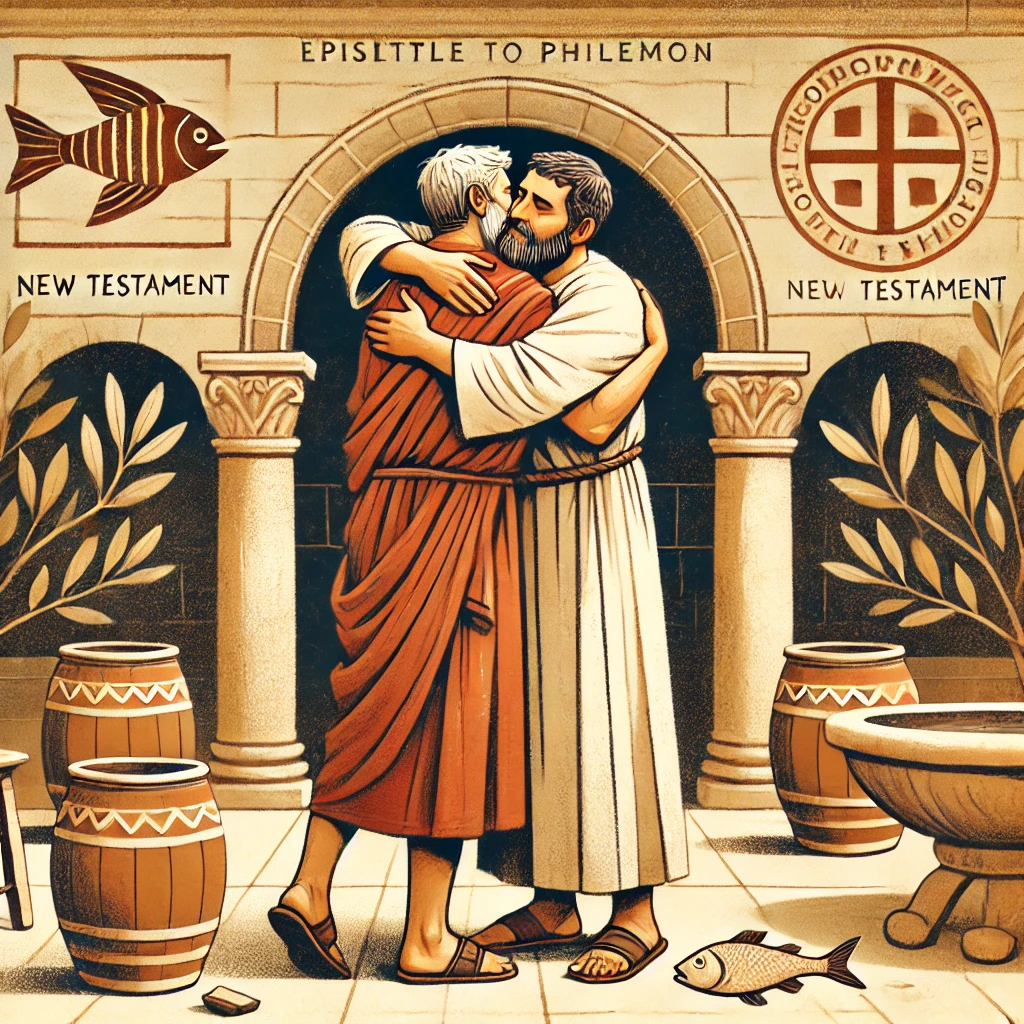The Book of Philemon is the eighteenth book of the New Testament and the shortest of Paul’s letters.
Written to Philemon, a Christian in Colossae, Paul appeals for mercy and reconciliation on behalf of Onesimus, a runaway slave who had become a believer while Paul was imprisoned.
Rather than demanding action, Paul gently urges Philemon to receive Onesimus—not as a slave, but as a brother in Christ.
This letter beautifully reflects the transforming power of the gospel in relationships.
Paul’s Greeting and Thanksgiving (Philemon 1–7)
Paul opens the letter with warm greetings and a prayer of thanks for Philemon’s love and faith.
Key Highlights:
- Addresses Philemon, Apphia, Archippus, and the church meeting in their home
- Thanks God for Philemon’s love, faith, and encouragement to others
- Acknowledges Philemon’s refreshment of the saints through his ministry
Lesson: Genuine faith leads to love, hospitality, and encouragement in the body of Christ.
Paul’s Appeal for Onesimus (Philemon 8–16)
Paul makes a personal and heartfelt appeal for Philemon to forgive and receive Onesimus back in love.
Key Highlights:
- Paul could command but instead appeals out of love
- Onesimus, once “useless,” has now become useful to both Paul and Philemon
- Paul considers Onesimus, his spiritual son
- Sends him back not as a slave but as a beloved brother
- Hopes Philemon will welcome him as he would welcome Paul himself
Lesson: The gospel transforms status and restores relationships—replacing duty with love and hostility with family.
A Pledge of Restoration and Final Blessing (Philemon 17–25)
Paul offers to repay any debt Onesimus may owe and closes with confidence in Philemon’s obedience.
Key Highlights:
- “If he owes you anything, charge it to me”
- Paul writes with confidence that Philemon will do even more than asked
- Asks for hospitality in hopes of future release
- Sends greetings from fellow workers: Epaphras, Mark, Aristarchus, Demas, and Luke
- Ends with a prayer for grace
Lesson: The gospel invites us to take responsibility, extend grace, and go the extra mile in love and reconciliation.
Themes of Philemon
- Forgiveness and Reconciliation – Christ brings people together across social and personal divides
- Gospel Transformation – The gospel doesn’t just save us—it changes how we treat one another
- Christian Brotherhood – In Christ, former enemies and strangers become family
- Grace Over Obligation – Paul’s appeal is not forceful but rooted in gospel-shaped love
- Responsibility and Restoration – True love takes responsibility for others and seeks peace
Final Thoughts
The Book of Philemon may be short, but its message is powerful.
Paul’s gentle appeal shows us how deeply the gospel transforms hearts, relationships, and communities.
It’s a living picture of grace, humility, and reconciliation—and a reminder that in Christ, no one is too far gone to be redeemed and restored.





